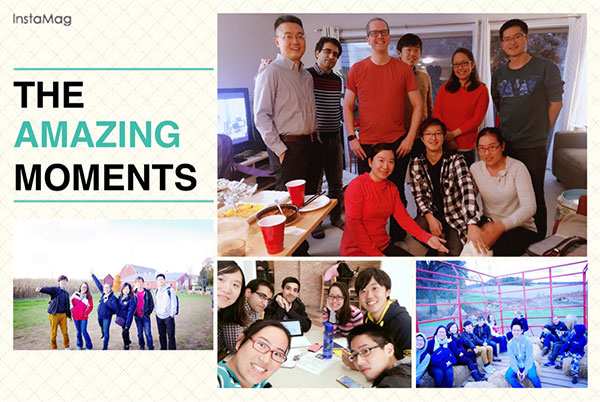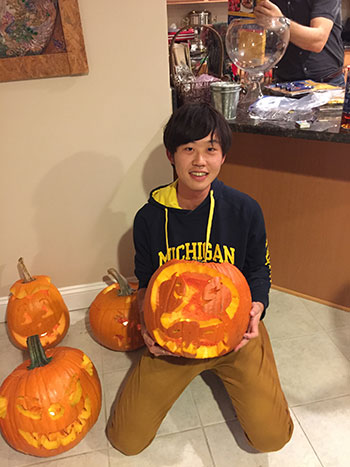Content of the study program
I carried out research into estimating the state of drivers using deep learning, in the DENSO International America R&D Lab, a joint research site of the laboratory of Prof. Kayvan in the University of Michigan. Specifically, we aimed to improve the accuracy of estimation of three states, namely stillness, yawning and talking/laughing, by conducting learning that combines facial and mouth images of drivers. Step 1 was to search for the optimal network for estimation of the three states from mouth images. Step 2 was to use this network to compare three inputs, facial image, mouth image and facial image+mouth image. By comparing in this way, we tried to find out which case produced the highest accuracy.
Study results
In Step 1, we found that the accuracy was approximately 5% higher when we used a 3-dimensional convolutional neural network (CNN3D), than when a 2-dimensional convolutional neural network was used (70.3%->75.6%). Then, by adding to the CNN3D (increased number of layers, added noise to the gradient, etc.), we were able to improve the accuracy even further (75.6%->77.9%). We later confirmed that the accuracy is improved by increasing the number of types of learning data (81.3%). In Step 2, we obtained results indicating that the accuracy is best when mouth images only are used as input.

My experience abroad
During this study abroad, I did not struggle in my regular life, thanks to the great deal of support I received from the SGU. In America it is expensive to eat out, the amount of food is large, and they are not that good in terms of taste, and for that reason, I decided in the first week to cook for myself. Where I stayed, in Ann Arbor, the city itself is comprised of elements relating to the university (I saw the university’s M mark everywhere). It is home to the country’s largest stadium with a capacity of 110 thousand, and at the weekends, when there are American Football matches between the universities, the mood is festival-like all over the city, and I was able to savor that atmosphere. There are practically no Japanese people, so it was common for me to struggle, being in an environment where I could not get much advice, but I was able to acquire the ability to think for myself and resolve the challenges I faced. As well, I joined an English conversation society for exchange students, which met about once a week, where I worked to improve my language ability.

Influence on my future career
Through this period of study abroad, I came to the realization that I want to become the someone who enters a Japanese company with offices based overseas, and has the ability to talk in English. Due to the fact that my English vocabulary is lacking, I suffered several times, from the feeling that I could not completely get across what I wanted to say, and for that reason, I plan to continue studying English so that I can maintain my language ability. I was also able to carry out research that differs from what I am doing in Japan, which allowed me to widen my perspective on the work that I would like to do in the future.
Other comments
Where I stayed, in Ann Arbor, I saw many foreign people, Chinese in particular, but I saw almost no Japanese people of my generation. It felt terrible to be active in such an environment, but it was an extremely valuable experience. I hope that support systems like SGU spread, and an environment is created where more Japanese people can study abroad.


